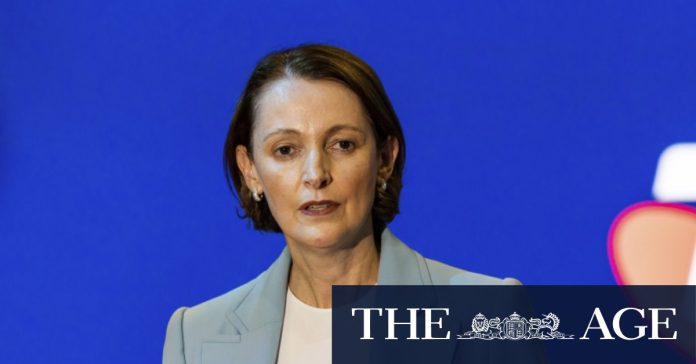[ad_1]
“The biggest impact we can have on climate change – especially in the short- to medium-term – is to emit less carbon,” Rowe said in a statement.
As part of the changes, Telstra is raising its scope- one-and-two emissions reduction targets from 50 to 70 per cent by 2030 in absolute terms rather than a net figure derived from offsetting. It was using its 2019 emissions equivalent to 1.3 million tonnes of carbon dioxide as the baseline and had achieved a 30 per cent reduction so far.
Scope one emissions are greenhouse gases released directly from things a company controls, while scope two are those released indirectly from by-products or requirements like heating or cooling. For Telstra, 95 per cent of both scope one and two emissions came from electricity usage.
The telco’s head of environment, Tom Penny, told this masthead that much had changed in the four years since Telstra last set its emissions targets.

Telstra says direct efforts to curb its carbon emissions will be more effective than purchasing carbon credits.
Credit: Bloomberg
“We think that the consumer appetite around it is that people want to see more of that direct action as opposed to offsetting,” he said in an interview.
“For a business like us, we have a lot of levers we can pull; we’re largely an energy-using business, and we can do a huge amount to reduce our energy consumption ourselves and keep investing in renewable energy.”
Loading
Penny said Telstra had invested in solar and wind projects on the eastern seaboard and will also explore technology-related options, including AI, to improve efficiency.
He added that Telstra was experiencing the effects of climate change through an increase in extreme weather events, such as bushfires and floods, causing network outages and damage to towers.
“Obviously, there’s a clear link between the increasing frequency and severity of those extreme weather events to climate change, and we’re a very exposed business in that regard,” Penny said.
Telstra’s position is stronger than most of corporate Australia, which relies heavily on carbon offsetting to meet emissions reduction goals. Carbon Market Institute chief executive John Connor said he strongly supported in-house decarbonisation where feasible, but most companies would need to supplement it with high-integrity carbon credits.
“If companies weren’t able to use carbon credits, a vast number of them would have to adopt less ambitious targets, which would be disastrous for our efforts to fight climate change,” he said
Telstra’s move comes after Opposition Leader Peter Dutton flagged that the Coalition could walk away from the Paris climate agreement and scrap Labor’s legislated target to cut emissions by 43 per cent by 2030. Net zero emissions by 2050 remains the Coalition’s policy.
Climate Active was contacted for comment but did not respond before deadline.
[ad_2]
Source link


